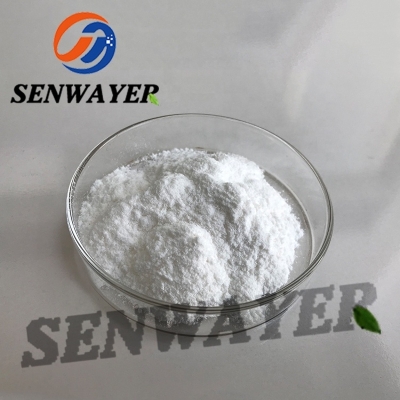-
Categories
-
Pharmaceutical Intermediates
-
Active Pharmaceutical Ingredients
-
Food Additives
- Industrial Coatings
- Agrochemicals
- Dyes and Pigments
- Surfactant
- Flavors and Fragrances
- Chemical Reagents
- Catalyst and Auxiliary
- Natural Products
- Inorganic Chemistry
-
Organic Chemistry
-
Biochemical Engineering
- Analytical Chemistry
- Cosmetic Ingredient
-
Pharmaceutical Intermediates
Promotion
ECHEMI Mall
Wholesale
Weekly Price
Exhibition
News
-
Trade Service
This week, the Alzheimer's Association International Conference (AAIC-2021) was held online and in Denver, USA
.
AAIC is one of the largest and most influential international conferences in the world focusing on scientific research on dementia
Alector announced the 12-month follow-up results of a Phase 2 clinical trial of the research antibody therapy AL001 in the treatment of patients with frontotemporal dementia (FTD)
.
These patients developed FTD symptoms due to mutations in the GRN gene that expresses progranulin (PGRN)
The GRN gene directs and encodes the PGRN protein, which is a key regulator of human immune response, lysosomal function and brain neuron survival, and is genetically related to many neurodegenerative diseases
.
Lysosome is the part of the cell that contains digestive enzymes, which can process waste and keep neurons healthy.
It depends on PGRN to function normally
AL001 is a potential "first-in-class" monoclonal antibody therapy
.
It increases the level of PGRN by targeting a receptor protein called sortilin to achieve the treatment of neurodegenerative diseases
The test results published in AAIC-2021 show that AL001 shows good safety and tolerability, and quickly restores the level of PGRN protein in plasma and cerebrospinal fluid (CSF)
.
Although this phase 2 clinical trial was not designed to test clinical benefit as the goal, however, the evaluation of clinical symptoms using the CDR plus NACC FTLD-SB scale (a tool for assessing FTD symptoms) showed that patients receiving AL001 Compared with the matched historical control group, the progress of clinical symptoms slowed by 47%
At the same time, multiple biomarkers related to disease, including those related to lysosomal function, complement activation, and neuronal health, tend to be normal or remain stable
.
At present, Alector is actively registering patients for the critical phase 3 clinical trial of AL001
.
Phase 3 clinical trial of tyrosine kinase inhibitor improves cognitive indicators in AD patients
Today, AB Science announced on AAIC-2021 the results of a phase 3 clinical trial of oral therapy masitinib in the treatment of AD patients
.
The results showed that masitinib showed significant effects in improving patients' cognitive indicators and indicators of daily living ability
Masitinib is a tyrosine kinase inhibitor
.
It has a dual mechanism of action.
On the one hand, it can inhibit the activation of mast cells by specifically inhibiting the activity of c-Kit, Lyn, and Fyn protein kinases
.
Mast cells are important targets in neurodegenerative diseases, inflammatory diseases and oncology
.
Their activation-mediated inflammatory response may be one of the factors in the occurrence of Alzheimer's disease
.
In addition, Masitinib can also target macrophages/microglia by inhibiting MCSFR-1 activity
.
These cells also play an important role in the inflammatory response of Alzheimer's disease
.
▲Introduction of masitinib (picture source: AB Science official website)
In the study named AB09004, AD patients were treated with placebo or Masitinib at a dose of 4.
5 mg/kg/day in addition to standard treatment
.
The results of the trial showed that after 24 weeks of treatment, compared with baseline, the ADAS-cog score of the Masitinib group decreased by 1.
46 (meaning improved cognitive ability), and the score of the placebo group increased 0.
69 (meaning worsened cognitive ability)
.
The score gap between the two groups was -2.
15 (97.
5% CI, -3.
48, -0.
81, p=0.
0003)
.
Using the ADCS-ADL scale for assessing the ability of daily living, the score of the Masitinib group increased by 1.
01 (meaning improvement in overall functioning) compared with baseline, and the score of the placebo group was reduced by 0.
81 (meaning decline in function)
.
▲The performance of Masitinib and the control group on cognitive ability indicators and daily function indicators (Image source: AB Science official website)
Professor Bruno Dubois, a researcher in the clinical trial of AB09004 and director of the Institute of Memory and Alzheimer’s Disease at the Pitié Salpêtrière Hospital in Paris, said: “These results prove for the first time that a drug that targets the innate immune cells in the neuroimmune system may be a mild to moderate AD patient.
Bring benefits
.
"
Reference materials:
Reference materials: [1] AB Science announced that results from its Phase 3 AB09004 study on mild to moderate Alzheimer's disease have been presented at the AAIC.
Retrieved July 29, 2021, from https:// 07/29/2271601/0/en/AB-Science-announced-that-results-from-its-Phase-3-AB09004-study-on-mild-to-moderate-Alzheimer-s-disease-have-been- presented-at-the-AAIC.
html
Retrieved July 29, 2021, from https:// 07/29/2271601/0/en/AB-Science-announced-that-results-from-its-Phase-3-AB09004-study-on-mild-to-moderate-Alzheimer-s-disease-have-been- presented-at-the-AAIC.
html
[2] AB Science Corporate Presentation May 2021.
Retrieved July 29, 2021, from https:// AB Science Corporate Presentation May 2021.
Retrieved July 29, 2021, from https:// [3] Alector Presents 12-Month Results from the INFRONT-2 Phase 2 Open-label Clinical Study of AL001 for the Treatment of Symptomatic Frontotemporal Dementia Patients with a Progranulin Mutation.
Retrieved July 29, 2021, from https://investors.
alector .
com/node/7956/pdf
Retrieved July 29, 2021, from https://investors.
alector .
com/node/7956/pdf
[4] Twelve-month results from the INFRONT-2 Phase 2 open-label clinical study of AL001 in Frontotemporal Dementia patients with a Progranulin mutation (FTD-GRN).
Retrieved July 29, 2021, from https://investors.
alector.
com/static-files/2766e30a-0079-4236-998b-f9752859fac5
Retrieved July 29, 2021, from https://investors.
alector.
com/static-files/2766e30a-0079-4236-998b-f9752859fac5







